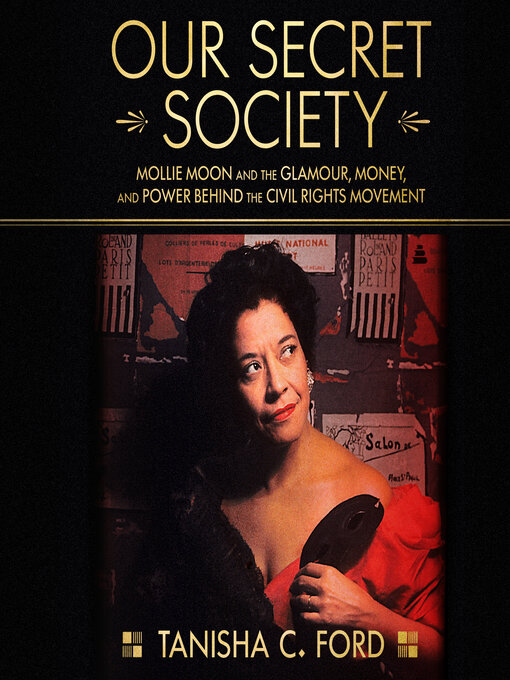An engrossing social history and memoir of the unsinkable Mollie Moon, the stylish founder of the National Urban League Guild and fundraiser extraordinaire who reigned over the glittering ""Beaux Arts Ball," the social event of New York and Harlem society for fifty years—a glamorous event rivalling today's Met Gala, drawing America's wealthy and cultured, both Black and white.
Our Secret Society brilliantly illuminates a little known yet highly significant aspect of the civil rights movement that has been long overlooked—the powerhouse fundraising effort that supported the movement—the luncheons, galas, cabarets, and traveling exhibitions attended by middle-class and working-class Black families, the Negro press, and titans of industry, including Winthrop Rockefeller.
No one knew this world better or ruled over it with more authority than Mollie Moon. With her husband Henry Lee Moon, the longtime publicist for the NAACP, Mollie became half of one of the most influential couples of the period. Vivacious and intellectually curious, Mollie frequently hosted political salons attended by guests ranging from Langston Hughes to Lorraine Hansberry. As the president of the National Urban League Guild, the fundraising arm of the National Urban League; Mollie raised millions to fund grassroots activists battling for economic justice and racial equality. She was a force behind the mutual aid network that connected Black churches, domestic and blue-collar laborers, social clubs, and sororities and fraternities across the country.
Historian and cultural critic Tanisha C. Ford brings Mollie into focus as never before, charting her rise from Jim Crow Mississippi to doyenne of Manhattan and Harlem, where she became one of the most influential philanthropists of her time—a woman feared, resented, yet widely respected. She chronicles Mollie's larger-than-life antics through exhaustive research, never-before-revealed letters, and dozens of interviews, including with Mollie's daughter and namesake.
Our Secret Society ushers us into a world with its own rhythm and rules, led by its own Who's Who of African Americans in politics, sports, business, and entertainment. It is both a searing portrait of a remarkable period in America, spanning from the early 1930s through the late 1960s, and a strategic economic blueprint today's activists can emulate.
Supplemental enhancement PDF accompanies the audiobook.

